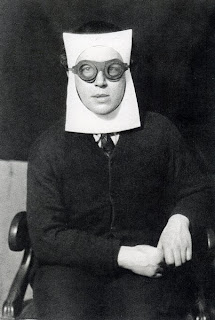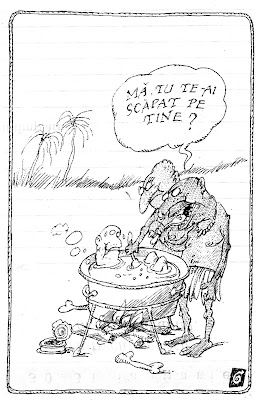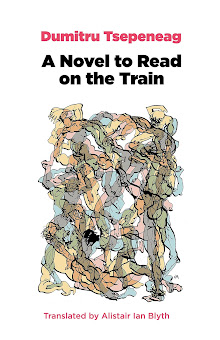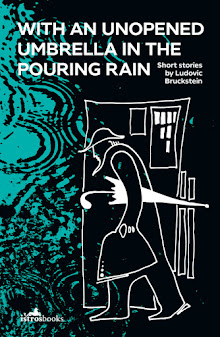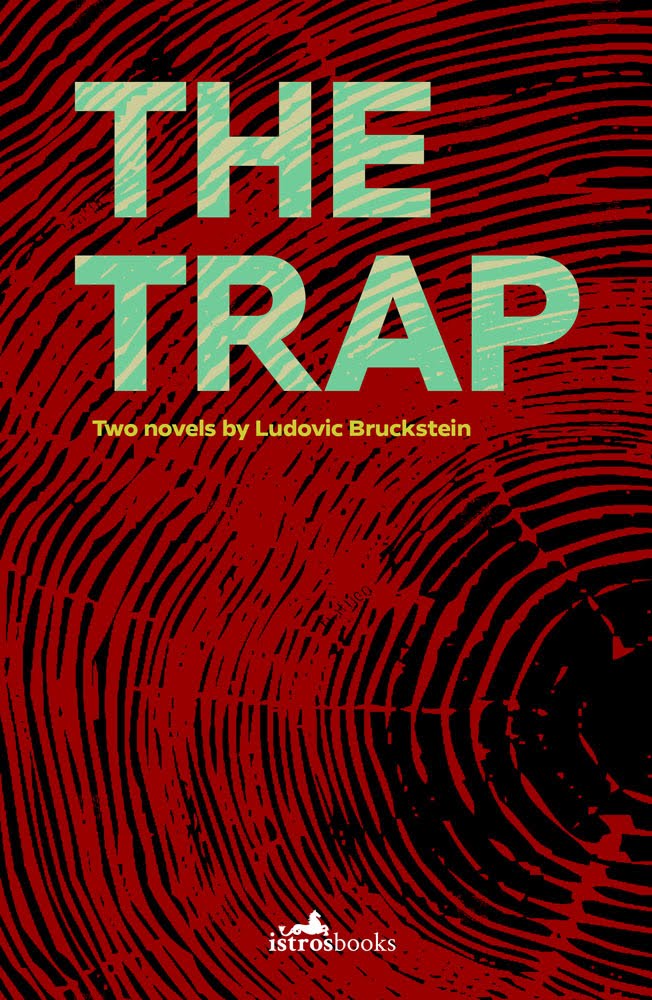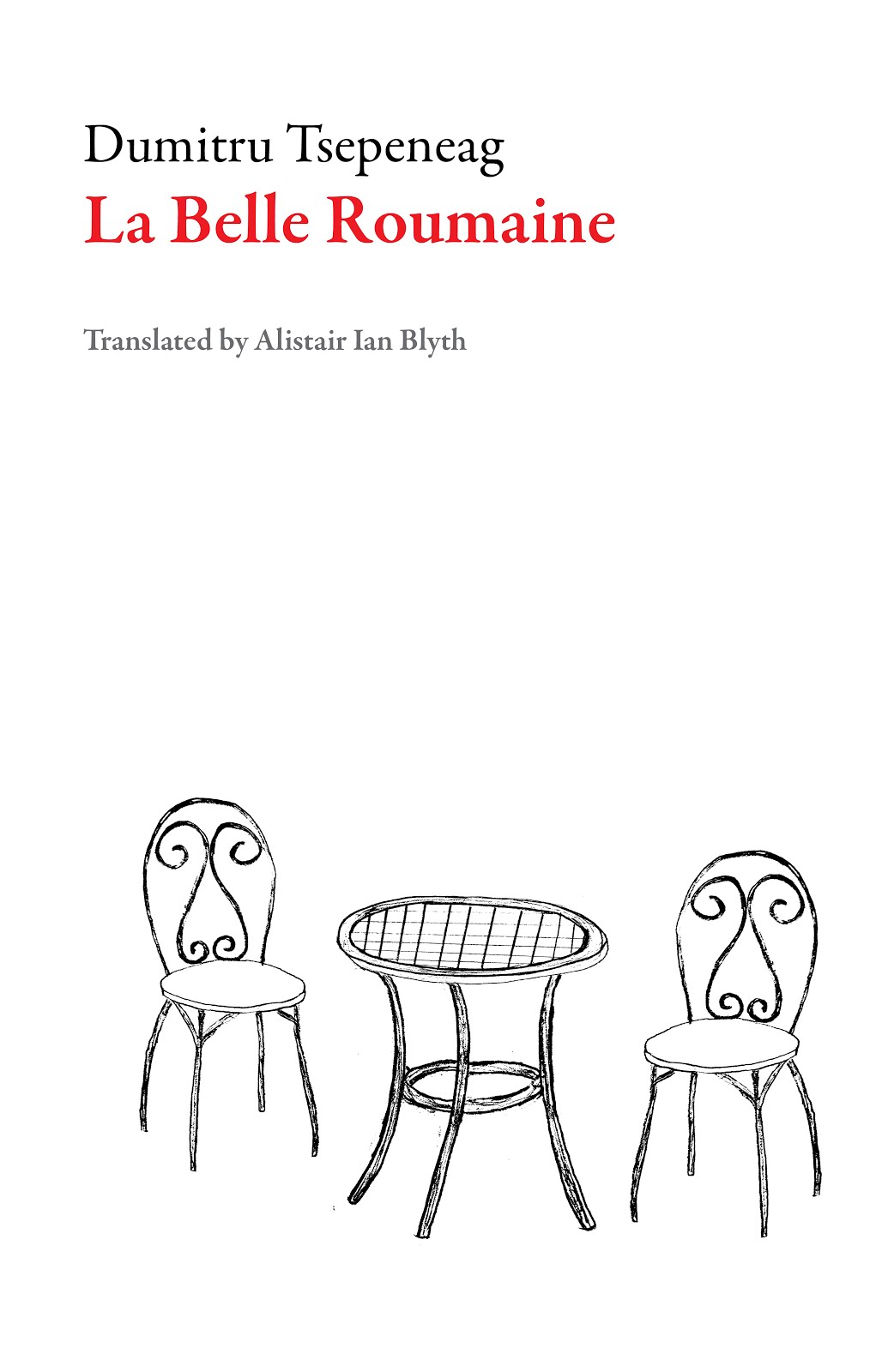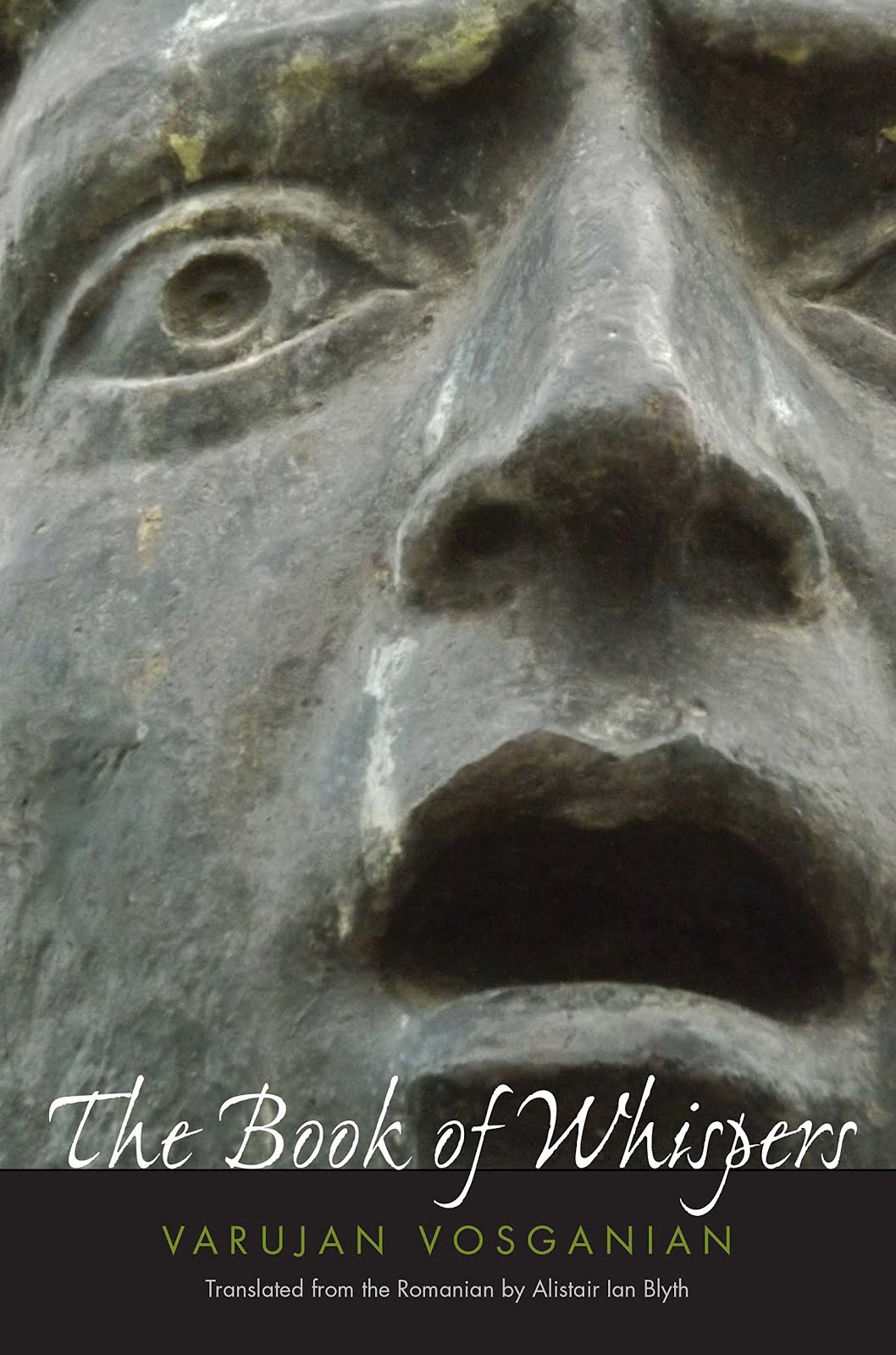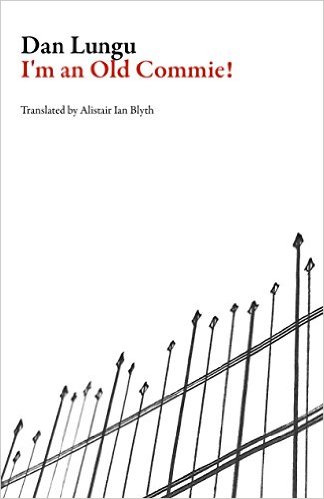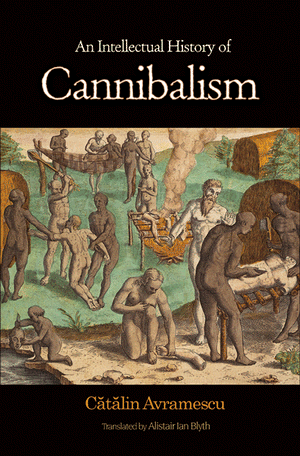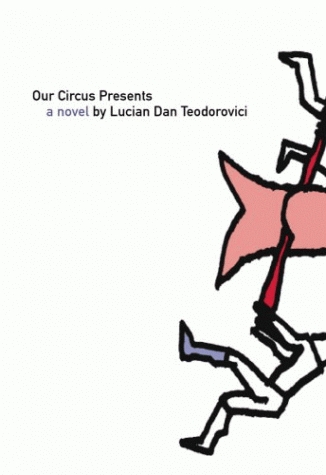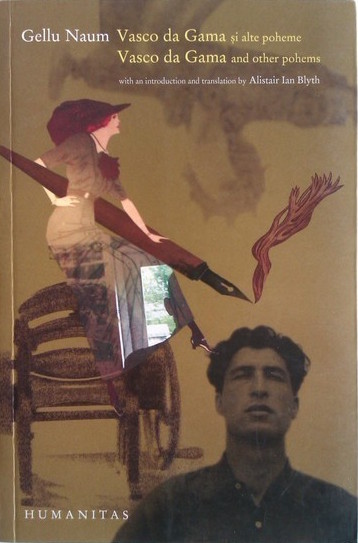George Bacovia (1881–1957) is widely regarded as having been one of the most important Romanian poets of the twentieth century. Although his work has its origins in and draws much of its imagery from late Symbolism, Bacovia was a modernist whose work bears comparison with the poetry of German expressionism. The poetry of George Bacovia might also be defined in terms of
Stimmung, a term employed by Hegel, Schopenhauer and Nietzsche to designate atmosphere in the moral or lyric sense: the inter-penetration of subjective mood and the atmosphere immanent in the external setting. The mood that is evoked in Bacovia’s work is one of isolation, neurosis, lovelessness, despair, and existential anguish. It is a subjective state that simultaneously permeates and is exuded by his poetry’s décor of muddy, provincial streets, pluvial autumn weather, deserted municipal parks, claustrophobic salons, railway sidings, abattoirs, ramshackle slum dwellings, cemeteries, and insalubrious taverns. The boards of this eerie, expressionist stage set are trodden by a cast of consumptives, suicides, alcoholics, madmen, funeral processions, the sniggering ghosts of Poe and Rollinat, and the alienated, anguished persona of the poet himself, assailed by disembodied voices boding imminent self-annihilation.
In spite of the theatrical intensity of his poetry, Bacovia’s life can be said to have been unspectacular. Although he lived through two world wars and a period of social and political upheaval, his biography is singularly lacking in incident. He was born Gheorghie Vasiliu in the Moldavian town of Bacău, which was to provide him with the pseudonym ‘Bacovia’ as well as the bleak provincial setting of much of his poetry. His entire adult life he was to be afflicted by ill health and chronic depression, which led to a number of nervous breakdowns and hospitalisation. His poor health and nervous condition also meant that he was unable to practise as a lawyer, the profession for which he had studied, with frequent interruptions, from 1903 to 1911. Instead, he led a reclusive, solitary life, eking a living variously as a clerk, supply teacher, and librarian.
Bacovia published his first poem, ‘Și toate’ (‘And All’) in 1899 in
Literatorul, a review edited by flamboyant Romanian symbolist poet Alexandru Macedonski (1854-1920). The poem, which concludes with the line “In my heart it is autumn”, is in itself unremarkable and, if anything, a cliché typical of the period. Notably, the year it appeared also saw the publication of the last, autumnal works of the crepuscular ‘decadent’ movement in European literature, including Ernest Dowson’s
Decorations and Jean Moréas’
Les Stances. The 1890s, as Ezra Pound once put it, were a period of putrescent ‘muzziness’ (1), preliminary to that radical change in human nature which Virginia Woolf identified as having occurred “on or about December 1910”.(2) However, despite his fin-de-siècle debut, Bacovia’s first collection of poems, entitled
Plumb (
Lead), was not published until 1916, and was contemporaneous not only in date but also in its innovation with major modernist texts such as Ezra Pound’s
Lustra and Gottfried Benn’s
Gehirne.
Plumb earned widespread critical praise in Romania for its originality, although it would take many decades before Bacovia’s radical newness was fully appreciated or understood. Having said that, Bacovia was compared early on to major expressionist poet Georg Trakl (1887-1914) (3), whose posthumous
Sebastian im Traum had been published the year before
Plumb. However, after
Plumb, the work that established Bacovia’s reputation, other volumes of poetry followed only intermittently:
Scîntei galbene (1926) (
Yellow Sparks),
Cu voi… (1930) (
With you…),
Comedii în fond (1936) (
Comedies After All),
Stanțe burgheze (1946) (
Bourgeois Stanzas).
Scîntei galbene and
Cu voi… still included poems that had been written decades previously, in the late 1890s and the first decade of the twentieth century, thus producing a somewhat deceptive impression of Bacovia’s development as a poet. However, as is evident in his last published collection,
Stanțe burgheze, Bacovia’s later style, which reduces verse form to elliptical, almost telegraphic utterances, is radically different from his youthful ‘symbolism’.
In the early years of the communist regime, Bacovia was viewed with official disapproval as a “decadent”. Between 1948 and 1949 he briefly held a sinecure as an adviser to the People’s Theatre in Bucharest, but the post was abolished and he subsequently entered a period of protracted obscurity. Publication of his work was officially blocked until 1956, the year in which he published three poems in two separate periodicals as well as a new collection of his pre-war poetry. In the same year, the communist state, which had decided to exploit Bacovia for his propaganda value as a ‘proletarian poet’ (4), awarded him the “Order of Labour”. The attitude of Bacovia himself to his new-found celebrity was typically ambiguous and ironic, as is evident in a poem entitled ‘Festiva’, written on the occasion of the official celebrations to mark his seventy-fifth birthday, but not published until 1961 (5):
Da, fusei în castelul
Nababilor
Cu cristale, oglinzi și marmoră…
Iată! Am venit ca Hamlet
În hainele mele
Cernite.
“Yes, I was in the castle / Of the nabobs / With crystal, mirrors and marble … // Look! I arrived like Hamlet / In my inky garb.”
When he died the following year, the reclusive poet was honoured with an official funeral ceremony, which was attended by state dignitaries.
****
Bacovia’s early critics regarded him as a minor, provincial poet and pointed to what they saw as his primitivism, describing his poetry as an authentic, albeit naïve, outpouring of raw emotion. For example, in an article published in 1916, representing one of the earliest critical reactions to
Plumb, N. Davidescu interprets Bacovia’s poetry as being unaffectedly ‘sincere’. The poems in
Plumb would thus represent a raw, unpolished proto-poetry, an expression of the “elementary stirrings of life, impulsively manifested through cries of pain, surprise, sadness.”(6)
The supposed ‘primitivism’ of George Bacovia’s work might be discovered even in the physical appearance of his books as objects, with their low quality paper and shoddy typography. Critic Vladimir Streinu, in particular, was appalled by the shabby aspect of Bacovia’s printed works: “All his volumes are squalid in appearance, so squalid in fact that the reader is even put off opening them… The second, third and fifth collections are truly repugnant in appearance.”(7) He contrasts this with the evident penchant of other, more pretentious, poets for elegant deluxe editions.
On the other hand, the physical neglect evident in the volumes that were published subsequent to
Plumb is the natural and tangible manifestation of a “declining talent”, what Streinu defines as “resignation of spirit and moral regress”. However, although he recognises that the reading public would probably scoff at such a claim, Streinu is quick to affirm that Bacovia is a poet unique not only in Romanian letters but also in the context of universal literature. In spite of the fact that his poetic line often fails to achieve full articulation, George Bacovia is, Streinu argues, a profoundly suggestive poet, whose originality lies in his exploration of the process whereby consciousness tends to extinction and is reduced to a physiological state, a process of involution, of collapse that attains the primary state of matter.(8) In this context, we might compare Bacovia to Gottfried Benn, in whose poetry the agony provoked by the world of consciousness (
Bewußtseinswelt) brings about the urge to regress to the primitive, ‘deforeheaded’ (
entstirnt) condition of protoplasm. Certainly, in many of Bacovia’s poems the ‘primitive’ and the ‘barbarous’ threaten to overwhelm with elemental madness the enervated consciousness of the lyric ‘I’, such as in ‘Plouă’ (‘It’s Raining’), collected in the volume
Plumb:
Oh, plînsul tălăngii cînd plouă!
Și ce enervare pe gînd!
Ce zi primitivă de tină!
O bolnavă fată vecină
Răcnește la ploaie rîzînd…
Oh, the sobbing of cowbells when it rains! // And such enervation of thought! / Such a primitive day of clart! / A sickly girl from next door / Is yelling at the rain laughing…
In ‘Seara tristă’ (‘Sad Evening’), for example, whose setting might be compared with Gottfried Benn’s ‘Nachtcafe’ (in the volume
Fleisch, 1917), it is the ‘barbarous’ singing of a woman to the accompaniment of zithers that threatens to obliterate the intoxicated, fragile awareness of the poet. Ultimately, the poetry of
Plumb is not so much the expression of a primitive awareness as that of an exacerbated self-consciousness whose hypertrophy now threatens collapse and regression to animal oblivion.
Later critics have tended to interpret Bacovia’s poetry in precisely the opposite terms to primitivism, emphasising its artificiality and almost hysterical theatricality. In
Istoria literaturii române de la origini pînă în prezent (1941) (
The History of Romanian Literature from its Origins until the Present), George Călinescu dismisses earlier interpretations of Bacovia as a provincial primitive: “It is curious that the poetry of Bacovia has been regarded as lacking in any poetic artifice, as a poetry that is simple and artless. For it is precisely its artifice that strikes one and ultimately constitutes its worth.”(9) Indeed, Bacovia’s work is highly stylised: the obsessive repetition of a limited number of words, images and tropes creates a monotonous, claustrophobic and almost hallucinatory effect. The seeming lack of artifice is in fact a highly artificial construct that is a response to a profound crisis of language and spirit.
Like Georg Trakl, the great modernist poet with whom he was contemporary, George Bacovia is an autumnal poet. The autumn of the modernists is, however, no ‘season of mists and mellow fruitfulness’, but rather a state of spiritual and historical crisis. It is a dissonant, dyspnoeic fugue, in which world, language and self enter into putrefaction and ultimately cave in on themselves. Certainly, in the poetry of Bacovia, autumn is the manifestation of a generalised malady, which affects mind, body and world. In this context, his work is notable for the frequent occurrence of neologisms drawn from medical and psychiatric terminology:
a delira,
delir, (French
délirer,
délire);
a enerva (French
énerver);
a histeriza,
histerie, (French
hystériser,
hystérie);
nevroză (French
névrose);
paralizie (French
paralysie);
ftizie (French
phtisie). Striking in this category is the term
alcoolizat (‘
alcoholised’), the past participle of a verb derived from the French
alcoolizer. When, in ‘Nervi de toamnă’ (‘Autumn Nerves’), Bacovia imagines himself as an “alcoholised skeleton” lost in the rain, he does not, therefore, refer to a temporary state of inebriation, but rather to a chronic medical syndrome, that of physiological saturation with alcohol as a result of protracted abuse. Existential states become identical and interchangeable with chronic medical conditions. Nature, or rather the urban landscape, also manifests the symptoms of chronic ailment: a garden is “gangrened” (‘Poem in the Mirror’); a park is “consumed by cancer and phthisis” (‘In the park’); the town is “paralysed” (‘Autumn Notes’).
Spiritual crisis is also evident in the secularisation of external reality in Bacovia’s poems. In
Plumb, for example, a park is given precisely the epithet ‘secular’ (‘Décor’), while elsewhere the snow is described as falling “secularly” (‘Winter Lead’). In the poem ‘Yellow Sparks’, from the volume of the same name, a “positivist voice” wakes the poet at a “melancholic window”, while in ‘Ballet’ white ballerinas mysteriously arouse “the organic complex”. This secularisation (or de-sacralisation) of reality is ultimately part of a process whereby humans themselves become reified: “man has become concrete” (‘Winter Lead’, in the volume
Yellow Sparks).
Although man, nature and abstract qualities become reified, are reduced to things, the poems of Bacovia themselves are eerily devoid of concrete things. In the volumes
Lead (1916) and
Yellow Sparks (1926) the world becomes a bare stage set, like the “large, empty salon” where the histrionic action of the poem ‘Marche Funèbre’ takes place. Such objects as do appear acquire almost the function of theatrical props or costume: a coffin, an armchair, a large oval mirror, a handkerchief, funeral vestments and so on. Other things are not physically present except insofar as they are able to produce a sound effect from off-stage: the mournful clank of cowbells in the distance, a military bugle from the barracks at the edge of town, or a primaeval alpenhorn booming from the depths of a remote valley. Everywhere there is a neurasthenic hypersensitivity to sound: branches scraping against roofs, creaking woodwork, and, ubiquitously, the sound of the falling rain.
Otherwise, the world of things is reduced to amorphous, indeterminate ‘matter’, which impinges upon the awareness acoustically rather than visually or tactilely: “I hear matter weeping” (‘Lacustrine’). Similarly, colour becomes an acoustic rather than visual quality. This is nowhere more evident than in the obsessive repetition of the colour epithet ‘violet’ in numerous poems. Bacovia frequently employs the word ‘violet’ purely for its synaesthetic quality, a combination of colour, odour and sound, such as in the following lines, from ‘Nervi de Primavara’ (‘Spring Nerves’):
Primăvară…
O pictură parfumată cu vibrări de violet,
În vitrine, versuri de un nou poet;
În oraș suspină un vals în fanfară.
O nouă primăvară de visuri și păreri…
Spring… // A picture perfumed with violet vibrations, / In shop windows, verses by a new poet, / In town the brass band sobbing of a waltz. // A new spring of vagaries and views…
As the phrase “violet vibrations” and the obsessive alliteration of the consonant ‘v’ might suggest, the adjective ‘violet’ is primarily acoustic rather than chromatic. Of course, the adjective ‘violet’ and alliteration of the consonant ‘v’ situate Bacovia within a Symbolist tradition of melic language that can be traced back to Edgar Allen Poe’s poem ‘The City in the Sea’ and its line: “The viol, the violet and the vine.” For example, the word ‘violet’ also occurred repetitively in the work of English decadent poet Ernest Dowson, who held that that ‘v’ was the most beautiful sound and regarded his poetry as mere “sound verse, with scarcely the shadow of a sense in it”.(10) In the nineteenth century, Walter Pater had famously argued that ‘all art aspires to the condition of music’. In the context of decadence and symbolism, ‘sound verse’ was therefore another product of the spiritual crisis provoked by secularisation, a consequence, as Pater put it, of the decay of the ‘primitive power of words’, of the dissolution of the ‘natural bond between word and thing’.(11)
Nietzsche, in
Der Fall Wagner (1888), defined decadence as the sovereignty of the individual word at the expense of the whole, as an ‘anarchy of atoms’. Such fragmentation of language is already present in Bacovia’s early texts, written at the end of the nineteenth century, and becomes increasingly advanced in his later work. The verse as a unit ultimately breaks down so completely that all that remain are isolated, often monosyllabic words, as in the posthumously published poem ‘Gîndiri’ (‘Thoughts’) (12):
Frumos
Vesel
Bun
Urît
Trist
Rău
Cauze din etern
Și social…
Beauteous / Joyous / Good / Ugly / Sad / Bad / Eternal and social causes …
Poetry in any traditional, technical meaning of the term has collapsed: after all, a metrical foot requires at least two syllables. For Bacovia, however, this extreme askesis of verse form was already present during the very first decades of his career as a poet and, in this respect, he was very much ahead of his time. Poet and critic Ion Caraion compared Bacovia’s poetic experiments to the later ‘poem-objects’ of Dada and Futurism, or the radical dismemberment of language practised by e.e.cummings.(13) For example, in one of Bacovia’s notebooks, dated 1906-1912, can be found the following metrical experiment, entitled ‘Bisyllable and Monosyllable’ (14):
Am fost
Prost.
Exist
Trist.
Exist
Prost.
Ce trist
Rost.
I was / Badly. / I exist / Sadly. / I exist / Badly. / What sad / Sense.
In the volume
Plumb, such implosion of traditional verse form is represented by a metrical experiment entitled ‘Monosilab de toamnă’ (‘Autumn Monosyllable’), positioned, significantly, as the penultimate poem in the collection, in which ten-syllable lines alternate with monosyllables in an
abab rhyme scheme:
Toamna sună-n geam frunze de metal,
Vînt.
În tăcerea grea, gînd și animal
Frînt.
Autumn sounds metallic leaves in the window, / Wind. / In the heavy silence, thought and animal / Exhausted.
Elsewhere, words themselves break down into inarticulate exclamations (‘oh’, ‘ah’, ‘ugh’ and so on). Sentences break down into isolated noun phrases; sub-clauses break down into isolated adverbs. Again, this fragmentation can reach such an extreme that an individual verse might consist entirely of isolated lexemes separated by commas, as in the following example:
O, dormi, adînc, mereu, așa.
‘Serenada Muncitorului’, from Scîntei galbene (1926)
O, you sleep, deeply, always, thus. (‘The Worker’s Serenade’, from Yellow Sparks)
Moreover, punctuation no longer connects or separates, but continually decomposes into the three points that indicate suspension or interruption. In ‘Din Urmă’ (‘Latterly’), the last poem in the volume
Cu voi (1930), total fragmentation is achieved, with all but two verses petering out to form an ellipsis before any verb can be articulated:
Poezie, poezie…
Galben, plumb, violet…
Și strada goală…
Ori asteptări tîrzii,
Și parcuri înghețate…
Poet, și solitar…
Galben, plumb, violet…
Odaia goală…
Și nopți tîrzii…
Îndoliat parfum
Și secular…
Pe veșnicie…
Poetry, poetry… / Yellow, lead, violet… / And the empty street… / Or else late waits, / And frozen parks… / Poet, and solitary… / Yellow, lead, violet… / The empty room… / And late nights… / Fragrance mournful / And secular… / For eternity…
It might be argued that Bacovia’s monosyllabic ‘dialogues’ are also a formal anticipation of the theatre of the absurd. In any case, they are the literary equivalent of the psychopathological symptom of echolalia, as well as a harrowing expression of the impossibility of communication in a world of alienation. Ultimately, it becomes impossible to follow which voice belongs to whom, as one repeats the other, seemingly in a void (15):
- Te-am pierdut.
- Înnebunesc.
- Înnebunesc.
- Cum?
- Cum?
- Mai bine-atunci.
- Atunci.
- În infinit.
- În infinit.
- Dar cum?
- Cum’s toate.
- Cine știe…
- Cine știe…
- Poezie.
- Poezie.
(…)
- Eu, eu, tu, tu.
- Fum.
- Fum.
- Ce-a fost asta?
- Ce să fie?…
- Poezie.
- Poezie.
“I have lost you.” / “I’m going mad.” / “I’m going mad.” / “How?” / “How?” / “Better then.” / “Then.” / “In the infinite.” / “In the infinite.” / “But how?” / “How all things are.” / “Who knows…” / “Who knows…” / “Poetry.” / “Poetry.” / (…) “I, I, you, you.” / “Smoke.” / “Smoke.” / “What was that?” / “What do you think?…” / “Poetry.” / “Poetry.”
Thus, the boundaries that define the enunciating self are dissolved once and for all; we participate in the schizophrenic inner monologue/dialogue of the fractured self. The dramatic possibilities of this kind of dialogic monologue were later successfully exploited by Romanian poet Marin Sorescu (1936-1996), whose play
Jonah, for example, is a dialogue for a single actor.
The schizoid quality of Bacovia’s poems might be compared to that eerie atmosphere of heightened but empty significance experienced by sufferers of dementia praecox during the so-called ‘aura’ (which has been likened to experience of
Stimmung in art (16)) that precedes complete rupture with reality. External phenomena are imbued with a sense of intense but ineffable significance. For example, in one poem the falling autumnal leaves are “like a sinister sign”. Similarly, Bacovia describes how railway signals jerk meaninglessly, “în gol” (“in a void” or “emptily”). Signs are emptied of significance and continue to function mechanically but meaninglessly. Human gestures too become alien and uncanny: passers-by gesticulate theatrically but senselessly, producing a sense of foreboding.
In many poems, the self experiences its own primal, irrational urge for self-annihilation as an insistent, persecuting voice that originates from outside itself:
Pe drumuri delirînd,
Pe vreme de toamnă,
Ma urmărește un gînd
Ce mă îndeamnă:
--Dispari mai curînd!
‘Spre toamnă’, from Plumb (1916)
Raving along the roads, / In autumn weather, / A thought pursues me, / Which urges me to: // “Get on with it, vanish!” (‘Towards Autumn’, from Lead)
This voice seemingly comes from the depths of the earth:
Ascultă cum greu, din adîncuri,
Pamîntul la dînsul ne cheamă…
‘Melancolie’, from Plumb (1916)
Listen to how, from the depths, heavily, / The earth is calling us to her…
(‘Melancholy’, from Lead)
The word
fund (meaning ‘bottom, lowest part’, from Latin
fundus) recurs obsessively in the poems of Bacovia. In the poem ‘Winter Twilight’, for example, “un corb încet vine din fund” (a crow comes slowly from the depths), or, in ‘Pulvis’:
Imensitate, veșnicie,
Pe cînd eu tremur în delir,
Cu ce supremă ironie
Arăți în fund un cimitir.
Immensity, eternity, / While I convulse in delirium, / With what supreme irony / You reveal a graveyard at the bottom!
At one level, the crow and the cemetery are elements of décor, pasteboard scenery in an affected melodrama; at another level they arise from the depths of the ineffable. The
fund is the abyss, the Abgrund of nothingness that gapes open as meaning caves in, fatally eroded by the ineffable.
Bacovia, as we have seen, explores extreme and limit states of consciousness: disquietude, depression, and delirium. However, these states are presented in a highly ambiguous, ironic way. The neurotic poet is a pose, a self-parodying persona, but at the same time a means of hinting at an authentic, although ineffable, existential condition. In many poems this contradiction or fissure in the self is frequently conveyed by Bacovia’s reference to himself in the third rather than first person:
Un bolnav poet, afectat
Așteaptă tușind pe la geamuri.
‘Toamnă’, from Scîntei galbene (1926)
A sick poet, affected / Waits coughing at windows. (‘Autumn’, from Yellow Sparks)
The poet’s illness is at once genuine and histrionic, authentic and affected. Notable is the peculiar sense of indeterminacy created by the use of the indefinite article (‘a poet’ rather than ‘the poet’) and, curiously, the plural ‘windows’, rather than ‘the (definite) window’ or ‘a (particular) window’. This indeterminacy is heightened when, in the poem’s penultimate line, the scene being described is referred to as a “painting” (
tablou). For Bacovia, the world cannot be experienced directly, except as art and insofar as it imitates art:
Brumă, toamna literară,
Pe drum prăfăria se duce fugară.
Și-am stat singur supărat
În zavoiul decadent,
Și prin crengile-ncîlcite mi-am notat
Versuri fără de talent.
‘Vînt’, from Scîntei galbene (1926)
Hoarfrost, literary autumn, / On the road the dust-cloud goes fleeing. // And I stood alone sorrowful / In the decadent copse, / And amid the twisted branches I jotted down / Verses without talent. (‘Wind’, from Yellow Sparks)
Bacovia’s autumn is a ‘literary autumn’, a poetry about the poetry of autumn, an artificial, stylised autumn that is the reification of an ineffable state of inner crisis. Even the ubiquitous ravens in Bacovia’s work are not physical ravens perceived directly by the poet but rather “the ravens of the poet Tradem”.(17) Tradem was Traian Demetrescu (1866-1896), a minor Romanian symbolist, who died of phthisis aged thirty and whose poetry, particularly his most famous poem ‘Corbii’ (‘The Ravens’), was a source for much of Bacovia’s stylised imagery.
Ultimately, the peculiar complexity of Bacovia’s deceptively simple work lies in the fact that it is simultaneously sincere and ironic, self-parodying and in deadly earnest, authentic and artificial. It is this antinomy which makes Bacovia one of the great modernist poets.

(1) ‘Lionel Johnson’ (1915), reprinted in
Literary Essays of Ezra Pound (London, 1954, reissued 1985), page 363.
(2)‘Mr Bennett and Mrs Brown’ (1924), reprinted in
Collected Essays, volume 1 (London, 1966), page 321.
(3) By Oscar Walter Cișek in
Cugetul românesc 1.6 (1922).
(4)Largely on the strength of a poem of 1914, entitled ‘The Worker’s Serenade’, which in 1956 and 1957 was reprinted in periodicals, including Steagul roșu (The Red Flag), and became a favourite in anthologies of socialist poetry.
(5)
Viața românească 14.9 (1961), page 107. George Bacovia, Opere, edited by Mircea Coloșenco (Bucharest, 2001), page 320.
(6) Quoted in Rodica Zafiu,
Poezia simbolistă românească: Antologie, introducere, dosare critice, comentarii, note și bibliografie (Bucharest, 1996), page 242.
(7)
Pagini de critică literară. Marginalia (Bucharest, 1968), pages 35-41. Quoted in George Bacovia.
Opere, edited by Mircea Coloșenco (Bucharest, 2001), page 973.
(8) Ibid. Quoted in George Bacovia.
Opere, edited by Mircea Coloșenco (Bucharest, 2001), page 974.
(9) Quoted in Rodica Zafiu,
Poezia simbolistă româneascâ: Antologie, introducere, dosare critice, comentarii, note și bibliografie (Bucharest, 1996), page 243.
(10)
The Letters of Ernest Dowson, edited by Desmond Flower and Henry Maas (London, 1967), page 189.
(11) Walter Pater,
Marius the Epicurean: His Sensations and Ideas (1885), edited by Ian Small (Oxford, 1986), page 58.
(12) George Bacovia.
Opere, edited by Mircea Coloșenco (Bucharest, 2001), page 266.
(13) Ion Caraion,
Bacovia: Sfîrșitul continuu (Bucharest, 1977), pages 169-71.
(14) George Bacovia.
Opere, edited by Mircea Coloșenco (Bucharest, 2001), page 293.
(15) George Bacovia.
Opere, edited by Mircea Coloșenco (Bucharest, 2001), pages 297-300.
(16) See the chapter ‘The Truth-Taking Stare’ in Louis A. Sass,
Madness and Modernism: Insanity in the Light of Modern Art, Literature, and Thought (Cambridge, Mass., 1994).
(17) ‘Amurg’ (‘Twilight’), in the volume Plumb (1916).
(C) Alistair Ian Blyth, Bucharest, 2009












.jpg)





